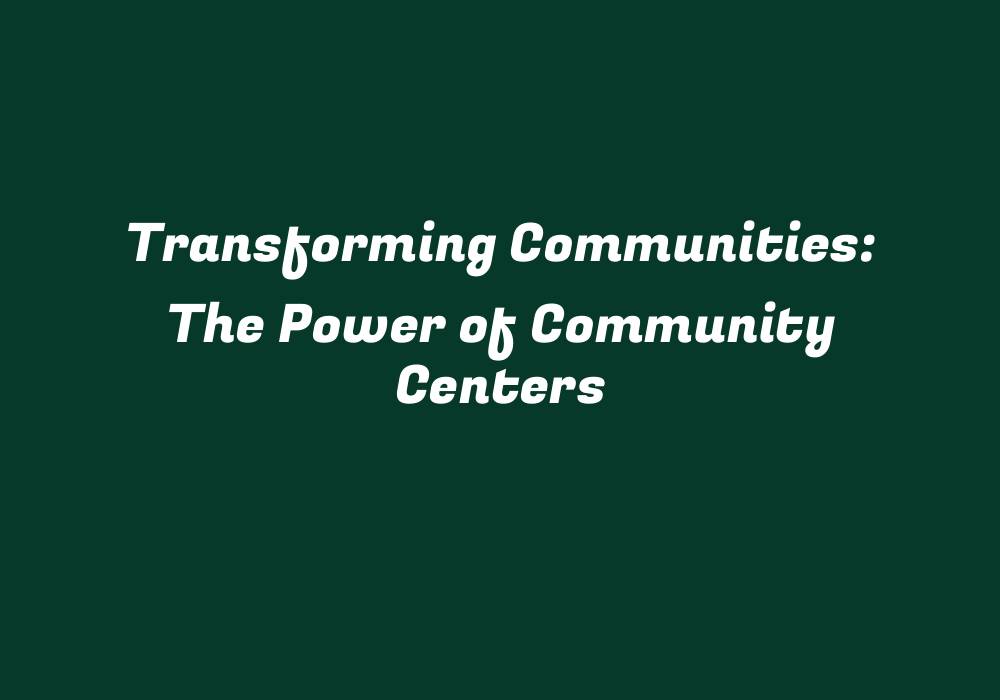Introduction: Community Centers as Pillars of Transformation
Community centers are essential hubs for the growth and well-being of communities. They provide a diverse range of facilities, services, and programs that contribute to the overall improvement in the quality of life for residents, especially in areas facing socioeconomic challenges or disadvantages. This article will delve into how community centers foster transformative change by offering vital resources and fostering community engagement.
Providing Essential Services
One of the primary roles of community centers is to provide essential services that are often lacking in underprivileged communities. These facilities ensure access to health care, education, employment support, and recreational activities, which are critical for a thriving society. By addressing these basic needs, community centers create an environment conducive to positive change and improvement for the individuals they serve.
Education and Skills Development
Community centers play a pivotal role in fostering academic excellence and promoting skills development among youth and adults. By offering after-school programs, tutoring services, and vocational training courses, these centers equip individuals with the necessary tools to succeed both inside and outside of the classroom. Education is crucial for breaking cycles of poverty and inequality, and community centers act as driving forces in empowering people to create better futures for themselves.
Health and Wellness: A Pillar of Change
Community centers are also vital hubs for health and wellness initiatives that significantly impact the overall quality of life in a neighborhood. These facilities offer preventative care, health screenings, and other medical services to ensure that residents have access to proper healthcare. By addressing health concerns early on, community centers help reduce the burden placed upon local hospitals and clinics, while simultaneously working towards improving public health for generations to come.
Cultural and Recreational Activities
Community centers often serve as venues for various cultural and recreational activities that foster social cohesion and a sense of belonging among residents. These spaces are designed to promote inclusion and celebrate the diversity within the community, allowing people from all walks of life to come together and enjoy shared experiences. By fostering connections and creating opportunities for communal engagement, these centers facilitate lasting change through the development of strong relationships and mutual respect.
Employment and Economic Growth
Community centers work tirelessly to address unemployment by offering job training programs, assistance with resume writing, and other employment-related resources. Through collaboration with local businesses and organizations, these facilities provide a platform for residents to learn valuable skills, build professional networks, and secure stable employment opportunities that contribute to the economic growth of their communities.
Transforming Communities through Community Centers: A Conclusion
In conclusion, community centers play an undeniably essential role in fostering transformation within the communities they serve. By providing a wide range of services and resources that address critical needs such as education, health care, recreation, and employment support, these facilities have the potential to bring about significant change for residents in need of assistance. As vital community pillars, it is imperative that we continue supporting these institutions and recognizing their transformational impact on our society’s future prosperity.
